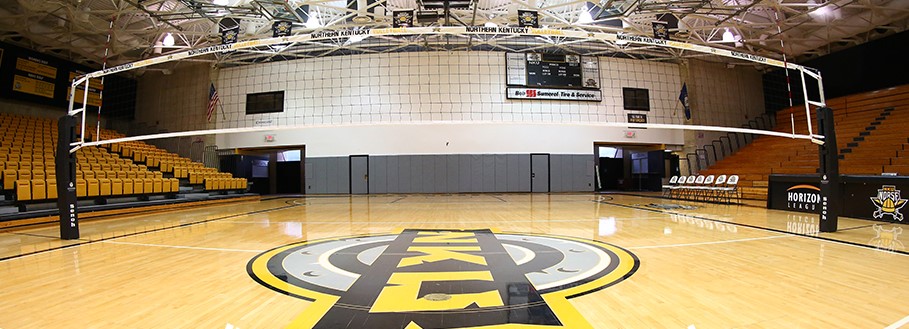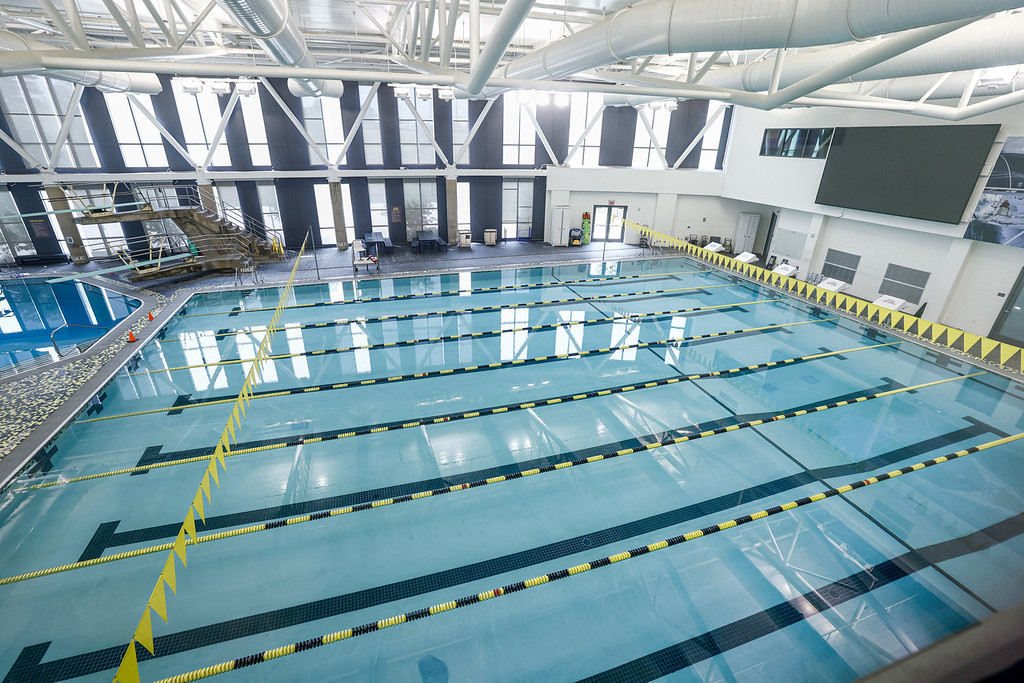
Northern Kentucky University will see a sprawl of new Division I sports teams beginning in the fall, marking the first additions since 1997.
Five new programs will begin in the 2024-25 school year: men’s and women’s swimming, men’s and women’s triathlon and women’s stunt. Beginning in the 2025-26 school year, men’s volleyball will officially be added to NKU’s roster.
With the new additions, NKU Athletics will boast 22 varsity programs, topping University of Cincinnati and doubling rival Wright State.
Athletic Director Christina Roybal expects the new sports to bring increased value to the university. First, through increased enrollment—the ultimate goal of developing the new programs—as 150 new student-athletes will enroll at NKU. This means students from the local community who would likely leave to attend another university with their sport will be able to stay at NKU instead, Roybal said.
“We’ve received so many students already looking, wanting to be recruited here for those sports,” the athletic director added.
Along with increased enrollment, the university hopes to see non-athlete students engage with the new programs and come see what the buzz is about. Especially with programs like stunt and men’s volleyball, there is lots of curiosity as to what the sports will look like, Roybal pointed out.
As for why the six new selections were the best for NKU, Roybal said there was a lot of research dedicated to finding the best programs. Last spring, Athletics began looking at how they could play a role in increasing the institution’s enrollment. Upwards of 20 different sports were explored, including football. Since the department wanted to keep expenses low and focus on programs that would make use of current facilities, Roybal said football just didn’t make sense.
Recruiting of new student-athletes will take precedence in Kentucky, Ohio, Indiana and Michigan. New coaches will potentially take on two different sports programs, like the triathlon coach helping with swimming. The programs’ conference affiliations are geographically-friendly, Roybal said, which will help maintain low travel costs.

Of the sports NKU did not previously have, swimming is one of the most-participated in programs at high schools in Kentucky and Ohio, according to Joe Cobbs, professor and chair of NKU’s Athletic Council.
University of Kentucky is the only other university in the Commonwealth with a stunt team. An NKU alumni who works in athletics at UK brought the sport to Cobbs’ attention a couple years ago. She discussed the sport’s success and wondered if NKU might consider adding it to their roster.
Stunt is a sport derived from cheerleading and governed by USA Cheer, Roybal explained. A game consists of four quarters and a halftime where two schools go head-to-head. The competing schools stand on two sides, performing routines including pyramids, team routines and partner work.
The athletic director also broke down the seasons and practice locations of the new sports.
Triathlon’s season is in the fall and consists of overall competitions in swimming, biking and running. Student-athletes can run and bike across campus and practice swimming in the Campus Recreation Center’s pool. Swimming will take place in the winter and will also utilize the Rec Center’s pool. Diving will not be a part of this program, as an additional coach and trampoline facility would be required.
Women’s stunt will run through the winter and spring. Because the sport uses mats similar to cheerleading, the team will utilize the Rec Center and Regents Hall. Men’s volleyball will take a full year to incorporate and will begin in the fall of 2025, taking place in Regents Hall where women’s volleyball already practices and competes.
While the new sports additions were approved by NKU’s Board of Regents at their November meeting, it was not met without opposition.
The proposed budget will not begin making a profit for the university until 2027-28. Incorporating the new sports is expected to cost the university up to $1.1 million by the year 2027-28. In the same year, Athletics hopes to make a profit of around $230,000 and will contribute a maximum of 150 new student-athletes.
John Farrar, president of the Faculty Senate, expressed his concerns as a faculty member at the November board meeting. He challenged the board members, asking what kind of business would look at the proposed budget and give it approval. “The problem is you’re supporting a small number of students and the cost is huge,” Farrar told The Northerner, pointing out that adding 150 new students at a university of 11,000 undergraduates is a very small percentage.
Then there is the concern that instructional and student support costs were not factored into Athletics’ expense budget. Instructional and support costs include things like a professor’s wages, classroom supplies, technology and student services. Farrar took the proposed profit margin of around $230,000 and divided it by the total number of new students, 150. The equation came out to around $1,500—the budgeted cost to instruct and support a student for the entire academic year. The faculty senate president said this was simply impossible.
“How in the world do you expect that,” Farrar questioned. “That’s not reasonable, it’s not gonna happen for that. We will lose money.”
Athletic Director Roybal pointed out that components were missing on both the expense and revenue categories of the budget. Student-athletes paying to live on campus, have a meal plan or obtain a parking pass were not factored into potential revenue. Plus, Roybal said, it is possible that instructional costs may be minimal if new students register for classes with available seats. “I can’t say for certain what majors these students are going to be taking, so that’s why that piece is missing,” the athletic director said.
While incorporating new sports to bolster enrollment is a new strategy for NKU, it has been used by other universities around the country, said Board of Regents Chair Rich Boehne, calling the tactic a “well-tested model.”
Smaller-sized schools, like those in Division II or III athletics, often utilize this method to gain enrollment and revenue, said Cobbs. Even though NKU is a Division I school, he believes this method can still be used, since most of the new student-athletes will be paying for their tuition instead of receiving athletic scholarships. Still, Cobbs said, the cost per student should remain “front of mind.”
“The bottom line is it needs to work and show a return on investment, or it’s not something we would stick with,” Boehne said.
In the meantime, the university is conducting a national search to fill the coaching positions, as triathlon is expected to begin in the fall.

